
Pride Month 2024
To our community,
A New Leaf wants to wish you a happy Pride Month! The month of June celebrates and honors the LGBTQ+ community and is critical to the ongoing fight for equal rights and protections for all. It’s a time when LGBTQ+ individuals and allies unite to celebrate identity, diversity, and the relentless pursuit of equality.
The LGBTQ+ community has endured long-standing discrimination, harassment, and violence, with too many people unable to show their true selves out of fear of judgement. Pride Month commemorates the triumphs and contributions of the LGBTQ+ community and also serves as a reminder of the struggles they have faced—and continue to encounter today. It calls each of us to action, urging us to advance our society towards greater inclusiveness and acceptance.
At A New Leaf, we actively serve and support everyone, regardless of sexual orientation or gender identity. Our doors are wide open to everyone in need. No individual should face barriers to assistance based on who they are or whom they love. During Pride Month, we reflect on the importance of breaking down these barriers, celebrating the progress made, and acknowledging the work that remains.
A New Leaf is grateful for your continued support, which empowers us to provide essential services to all members of our community. Your commitment enhances our efforts to foster a more inclusive environment, where every individual can live openly and proudly. Let us stand together in solidarity, advocating for the rights and recognition of the LGBTQ+ community, not just in June but each and every day.
Sincerely,


Kristina Gonzales
Foster Care Program Manager
A New Leaf
Click Below to View Each Section!
LEARN ABOUT THE ORIGINS OF PRIDE MONTH
LEARN ABOUT LGBTQ+ CHALLENGES
GET INVOLVED
UNDERSTAND HOW TO BE AN ALLY
FIND RESOURCES FOR LGBTQ+ INDIVIDUALS
History & Progression
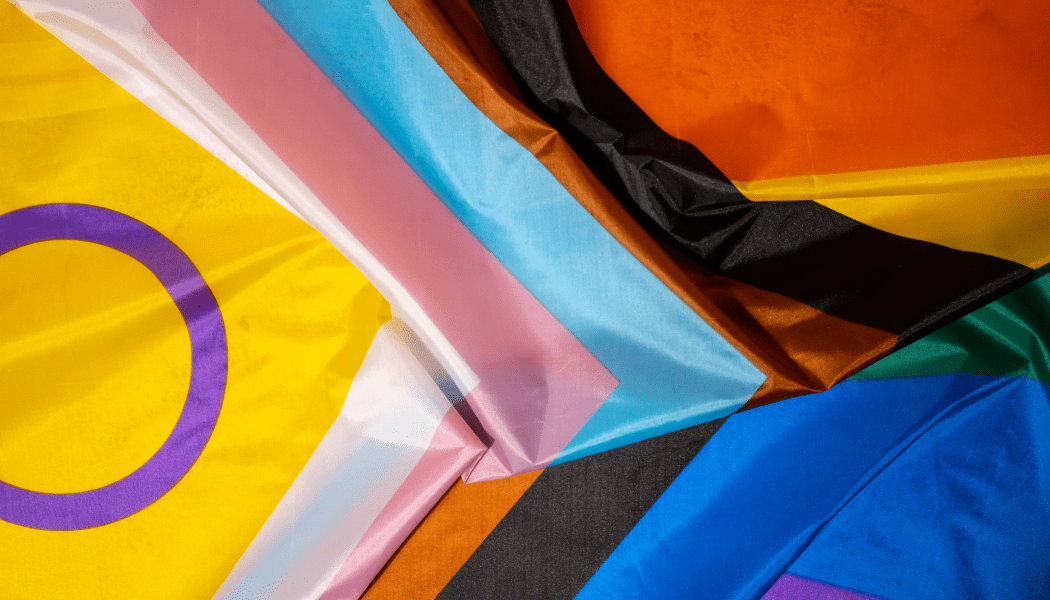
The modern LGBTQ+ rights movement began in the 1950s and 1960s, a time when homosexuality was still considered a criminal offense in many parts of the world. LGBTQ+ individuals faced widespread discrimination, harassment, and persecution, and were often forced to live in secrecy and shame.
In the United States, police raids on gay bars were common, and LGBTQ+ individuals had few legal protections. However, in June 1969, something extraordinary happened. The Stonewall Inn, a popular gay bar in New York City, was raided by police in the early morning hours of June 28. This raid, like so many before it, was met with resistance by the patrons of the bar. This resistance sparked several days of protests and clashes with law enforcement, and is often seen as the beginning of the modern LGBTQ+ rights movement.
In the years that followed, LGBTQ+ activists organized protests, marches, and other actions to demand equal rights and protections. The first Pride march was held in New York City in 1970, on the first anniversary of the Stonewall riots.
Over the next few decades, the LGBTQ+ rights movement gained momentum and achieved significant victories. In 1973, homosexuality was removed from the American Psychiatric Association’s list of mental disorders. In 2011, the “Don’t Ask, Don’t Tell” policy, which prohibited openly gay individuals from serving in the military, was repealed.
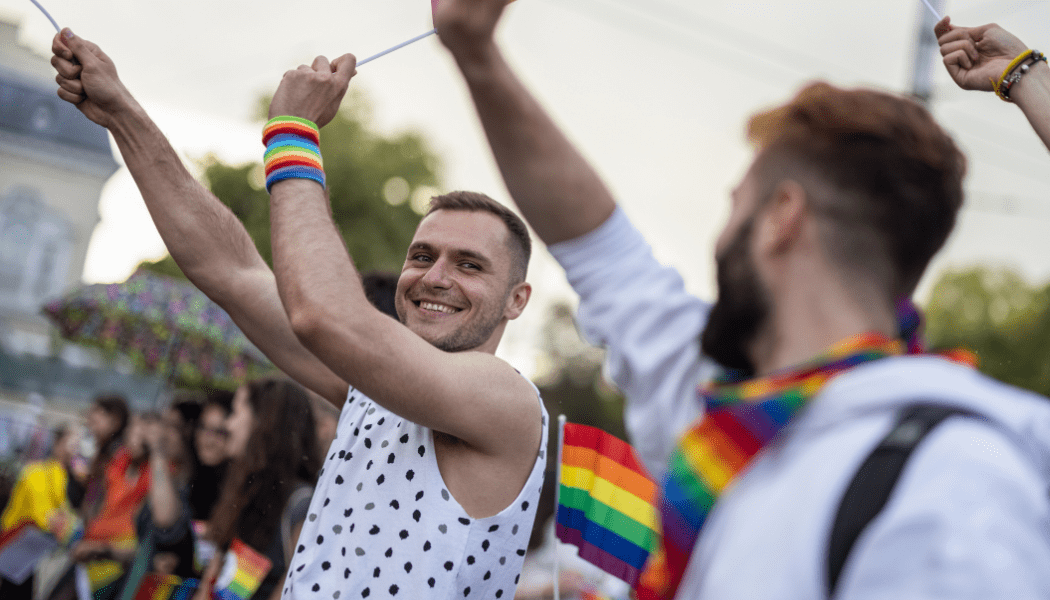
One of the most notable advancements was the legalization of same-sex marriage in the United States in 2015, following the landmark Supreme Court case of Obergefell v. Hodges. This decision granted same-sex couples the legal right to marry and recognized their unions as equal to those of opposite-sex couples.
Transgender rights have also gained increased visibility and attention in recent years. In 2020, the U.S. Supreme Court ruled that employers cannot discriminate against employees based on their sexual orientation or gender identity. This decision provided important protections for transgender individuals in the workplace.
In addition to legal victories, there have also been significant cultural shifts in the visibility and acceptance of LGBTQ+ individuals. The media has played an important role in this, with an increasing number of TV shows and movies featuring LGBTQ+ characters and storylines. Popular celebrities and public figures have also been more vocal about their support for the LGBTQ+ community, which has helped to raise awareness and promote acceptance.
There have also been important strides made internationally. In 2019, the tiny Himalayan nation of Bhutan became the latest country to decriminalize homosexuality. In addition, many countries have legalized same-sex marriage, including Canada, Argentina, Australia, and several European nations.
While there is still much work to be done in terms of LGBTQ+ rights and equality, the progress made in recent years is significant. The increased visibility and acceptance of LGBTQ+ individuals have helped to reduce stigma and discrimination, and the legal victories have granted important protections to LGBTQ+ individuals and couples. A New Leaf is committed to helping those in the LGBTQ+ community, and working towards a future of acceptance.
Challenges
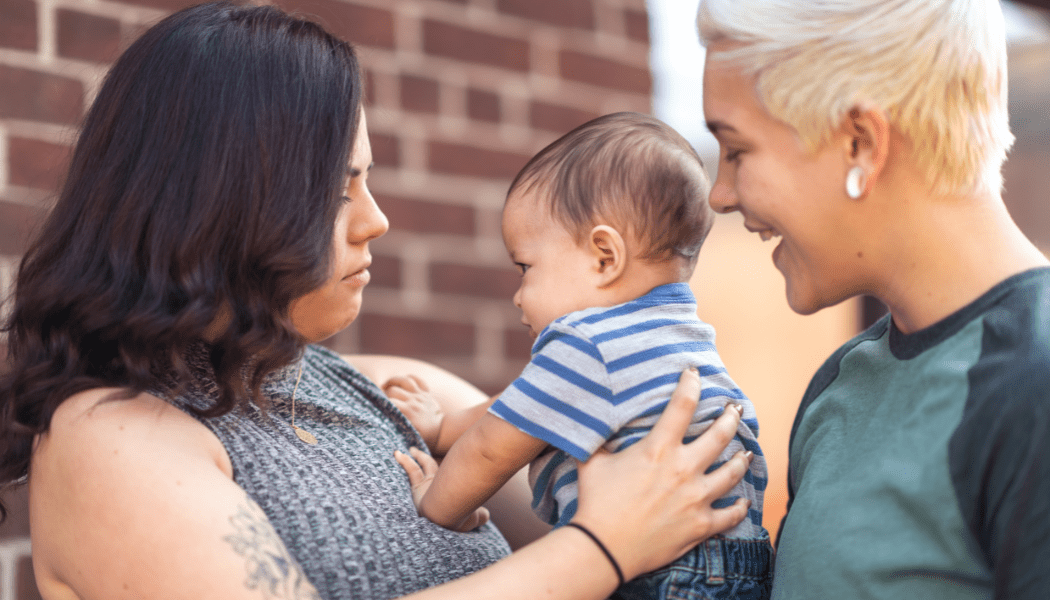
The LGBTQ+ community continues to face challenges in their day to day life simply due to their sexual orientation or gender identity.
- Workplace discrimination remains a significant issue, with many LGBTQ+ individuals reporting experiencing discrimination or harassment on the job. This can include being denied employment, promotions, or equal pay due to their sexual orientation or gender identity.
- Access to healthcare is another major issue, with many LGBTQ+ individuals experiencing barriers to receiving quality healthcare services. This can be due to lack of knowledge or sensitivity among healthcare providers, as well as discrimination and bias in the healthcare system.
- Transgender individuals, in particular, continue to face significant challenges and discrimination. Transgender individuals often face barriers to accessing healthcare, legal identification documents, and safe housing. Violence against transgender individuals, particularly transgender women of color, also remains a major concern.
- In addition to these challenges, LGBTQ+ youth continue to face high rates of bullying and harassment in schools, which can lead to negative mental health outcomes and even suicide.
It is important to acknowledge and address these ongoing challenges faced by LGBTQ+ individuals, and to continue advocating for equality and inclusion in all areas of life.
Get Involved
In addition to its role in activism and advocacy, Pride Month is also a time for celebration and community-building. It provides an opportunity for LGBTQ+ individuals and allies to come together, celebrate their identity and diversity, and build supportive networks and communities. The festivities of Pride Month, including parades, parties, and other events, help to foster a sense of belonging and inclusion for LGBTQ+ individuals.
There are many ways that individuals and communities can celebrate Pride Month and show support for the LGBTQ+ community. Here are some suggestions:
Attend Pride parades and events: Many cities hold Pride parades and events during the month of June. Attending these events is a great way to show support for the LGBTQ+ community and celebrate its diversity.
Support LGBTQ+ businesses: Look for local businesses that are LGBTQ+-owned or LGBTQ+-friendly and support them by shopping there or recommending them to others.
Advocate for LGBTQ+ rights: Write to your elected representatives, donate to organizations that support LGBTQ+ rights, and speak out against discrimination and hate speech.
Volunteer with LGBTQ+ organizations: Many organizations that serve the LGBTQ+ community rely on volunteers to support their programs and services. Consider volunteering with a local LGBTQ+ organization to show your support and make a difference in your community.
Show support on social media: Use social media to show your support for the LGBTQ+ community by sharing positive messages, sharing information about events, or using hashtags like #PrideMonth or #LoveIsLove.
Educate oneself on LGBTQ+ issues and history: Take the time to learn more about LGBTQ+ history and the issues faced by the community today. This can include reading books or watching documentaries about LGBTQ+ experiences, attending educational events, or seeking out online resources such as Barnes and Noble, or your local libraries website to find out more.
How to Be an Ally
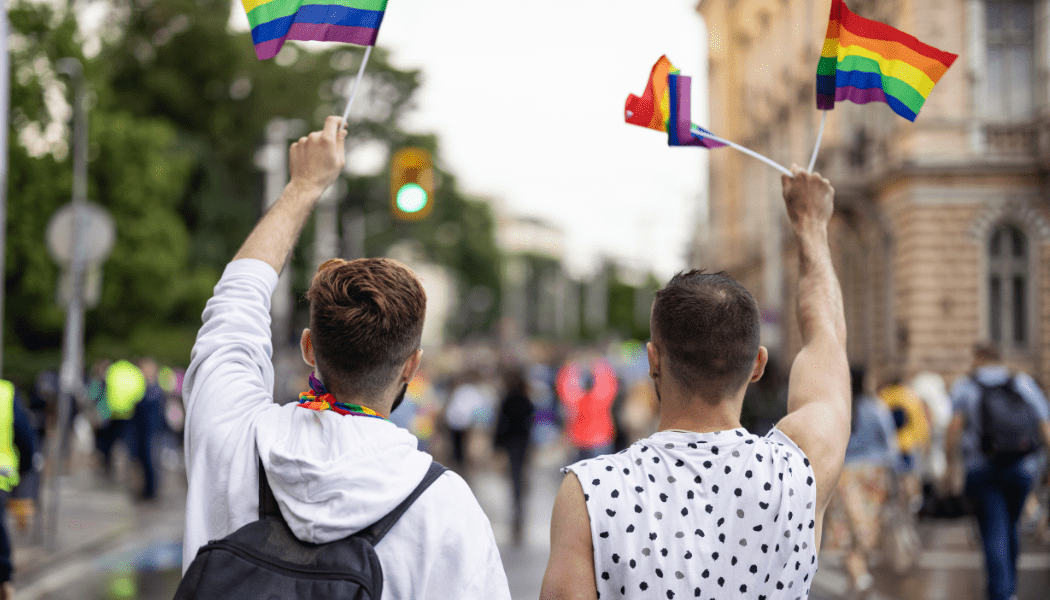
One of the most important things you can do to be an inclusive and supportive ally is to listen to and validate the experiences of LGBTQ+ individuals. Educate yourself on the issues and struggles faced by the community, and use your privilege and platform to advocate for equality and justice.
It’s also important to recognize and address your own biases and prejudices, and work to overcome them. Challenge homophobic and transphobic attitudes and behaviors when you encounter them, whether it’s in your personal life or in broader society.
Being an ally also means actively creating safe and inclusive spaces for LGBTQ+ individuals. This can include speaking out against discrimination, creating welcoming environments in schools and workplaces, and using gender-inclusive language.
Remember, being an ally is not about performative gestures or seeking recognition. It’s about standing up for what is right, using your voice and privilege to uplift marginalized voices, and actively working to create a world that is more just and equitable for all.
As we celebrate Pride Month, let’s commit to being allies to the LGBTQ+ community not just during June, but every day of the year. Together, we can create a world where everyone feels seen, valued, and loved for who they are.
Support & Resources
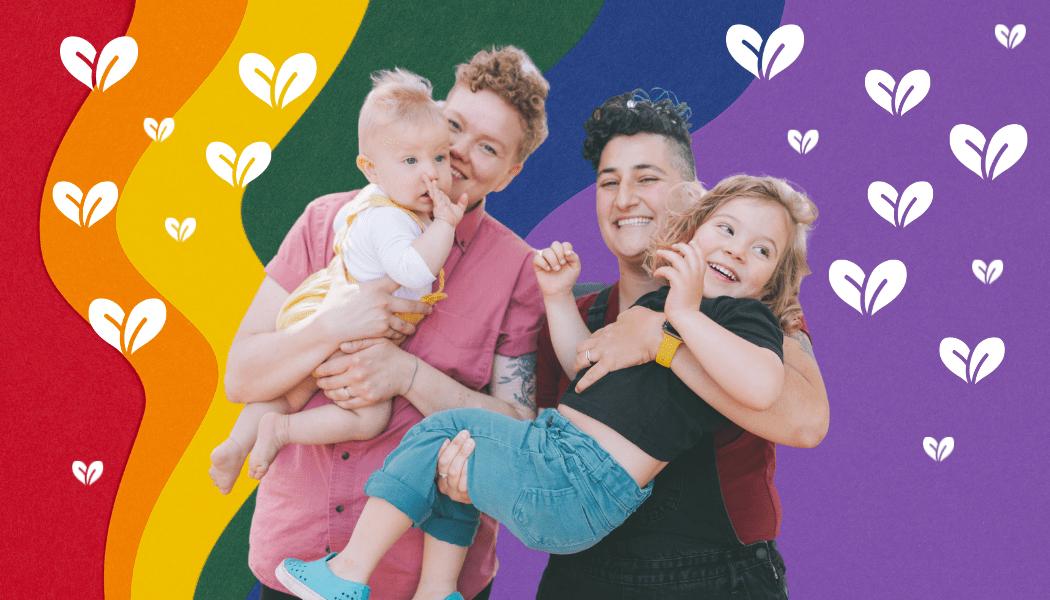
A New Leaf believes that every individual has the right to pursue the freedom of happiness, regardless of sexual preference or gender identification. Every LGBTQ+ American deserves to exercise the same freedoms and rights as everyone else. That’s why, at our many domestic violence and homeless shelters, not only do we open our arms and provide resources for the queer community, but we also are one of the first organizations in Arizona to allow individuals to choose a shelter based on their gender preference.
We also understand that LGBTQ+ youth are highly at risk of mental health complications and homelessness. According to a report by the Williams Institute at UCLA School of Law, approximately 40% of homeless youth in the United States identify as LGBTQ+. This is a much higher percentage than the estimated 7% of the general population who identify as LGBTQ+. A survey by the True Colors Fund found that LGBTQ+ youth who experience homelessness are more likely to suffer from mental health issues, such as depression and anxiety, than non-LGBTQ+ homeless youth. This is why we work tirelessly to address the needs of queer individuals and provide support and compassion to those who feel discriminated against.
If you or someone you know is struggling with their sexual identity or seeking support, there are many resources available:
The Trevor Project: This organization provides crisis intervention and suicide prevention services for LGBTQ+ youth. They also offer resources and support for those struggling with their sexual identity. You can contact them 24/7 by phone, text, or chat.
GLAAD: The Gay and Lesbian Alliance Against Defamation (GLAAD) works to promote acceptance and understanding of LGBTQ+ individuals. They offer a variety of resources, including media resources and advocacy tools.
PFLAG: Parents, Families and Friends of Lesbians and Gays (PFLAG) is a national organization that provides support, education, and advocacy for LGBTQ+ individuals and their families. They have local chapters throughout the United States and offer a variety of resources, including support groups and educational materials.
The National Center for Transgender Equality: This organization works to promote and advocate for transgender rights and provides a variety of resources and support for transgender individuals.
The Human Rights Campaign: This organization is the largest LGBTQ+ civil rights advocacy group in the United States. They work to promote equality and advocate for LGBTQ+ rights through a variety of initiatives and programs.
Remember, you are not alone and there is support available. Don’t hesitate to reach out and seek the help you need.

